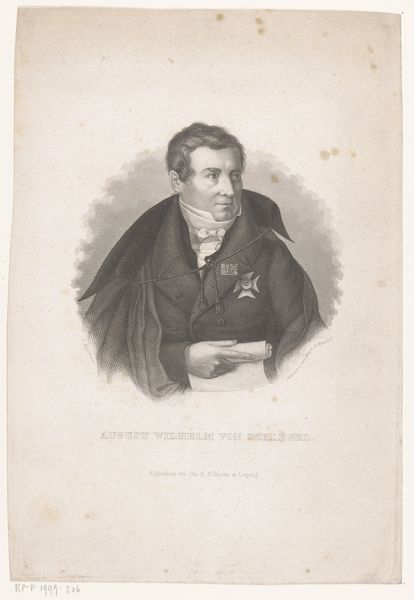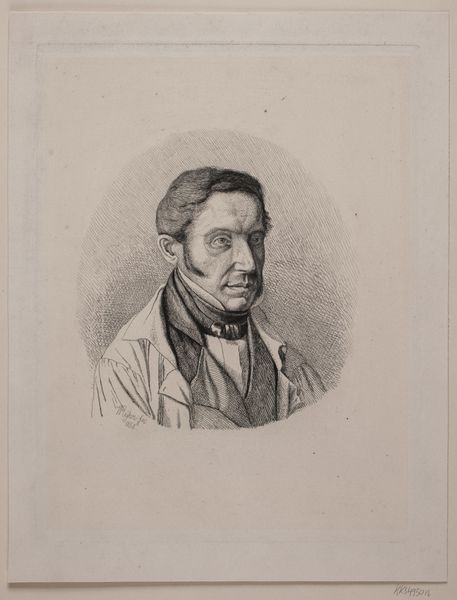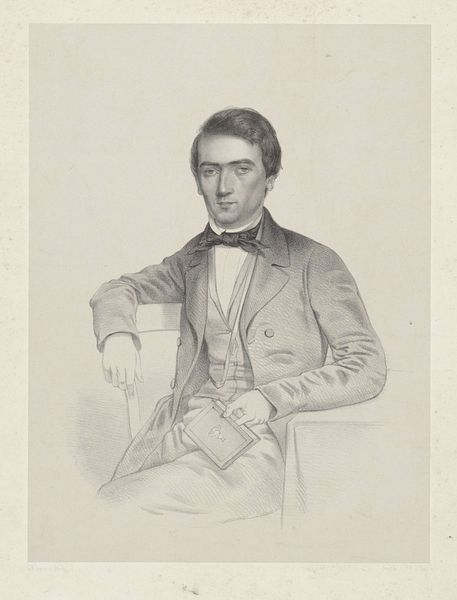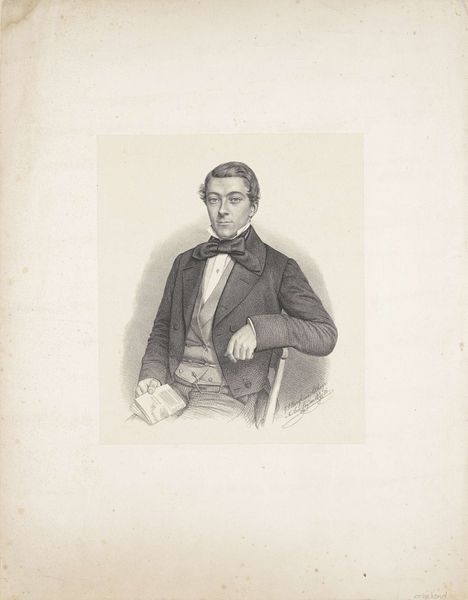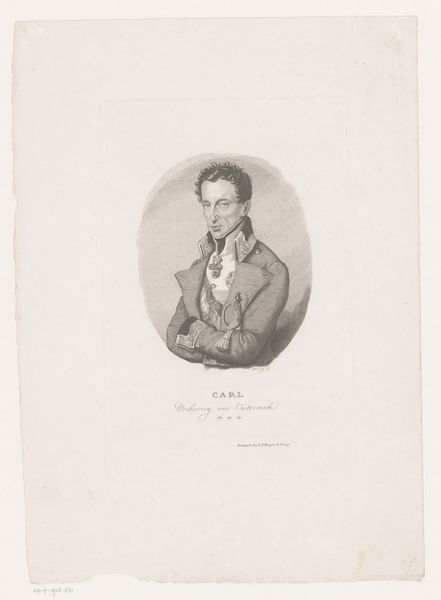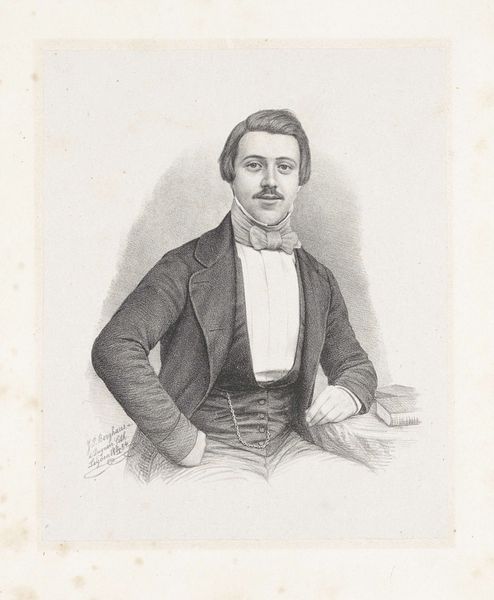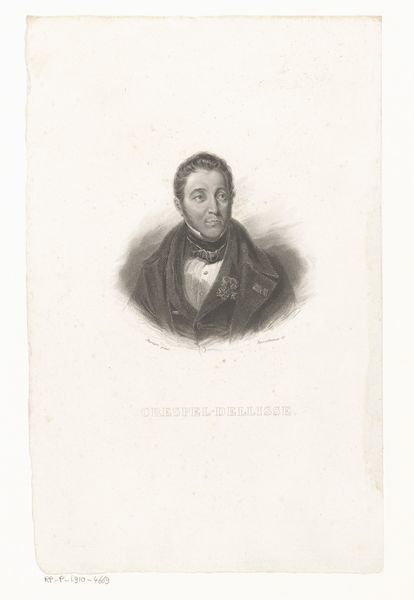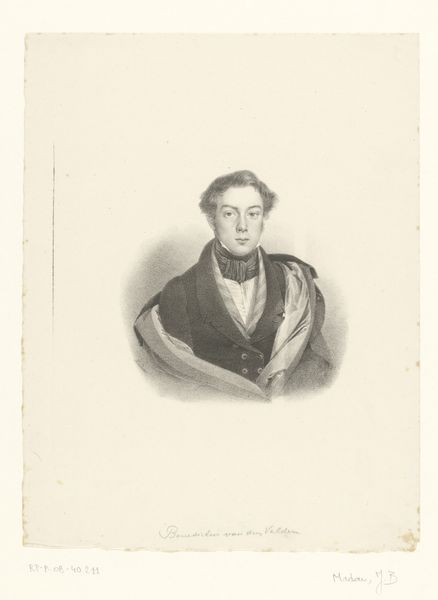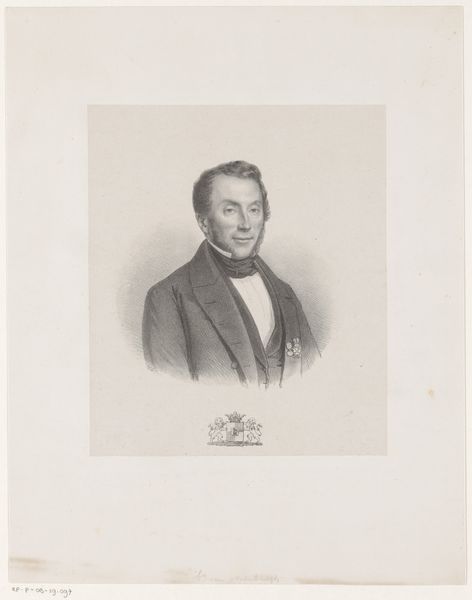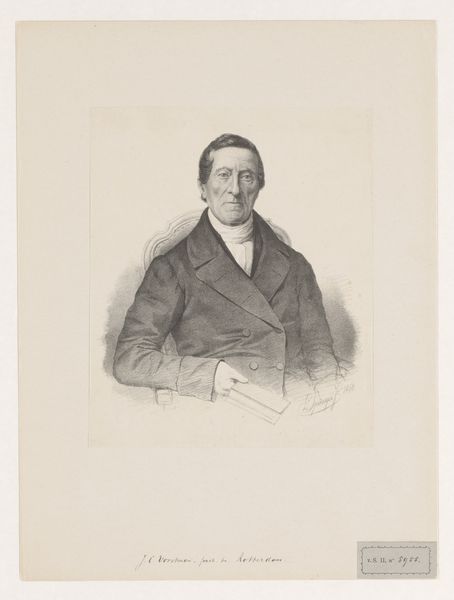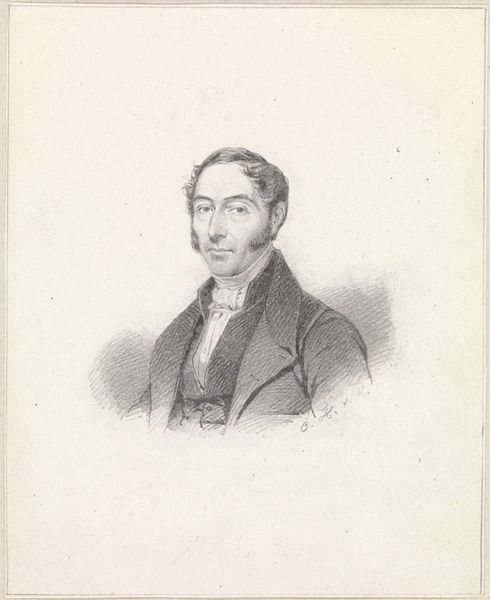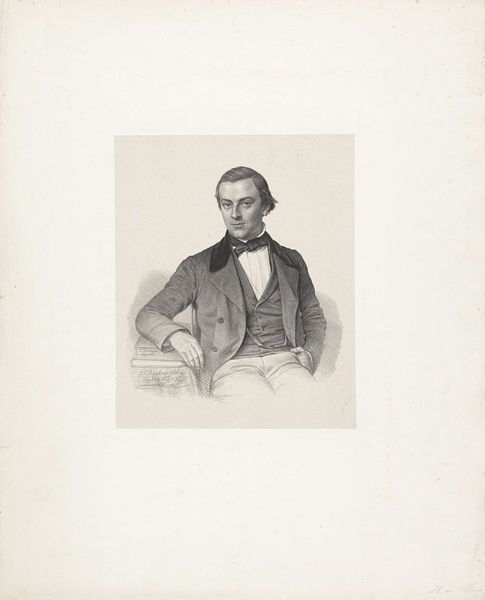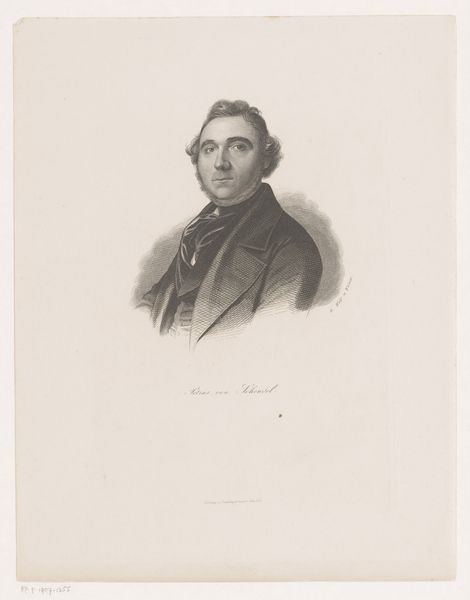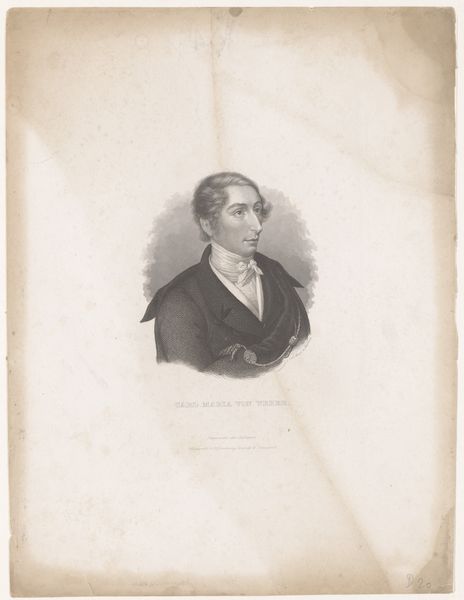
Voorstudie voor het portret van prof. Hendrik Cock 1774 - 1837
0:00
0:00
charleshowardhodges
Rijksmuseum
drawing, pencil
#
portrait
#
pencil drawn
#
drawing
#
amateur sketch
#
light pencil work
#
pencil sketch
#
old engraving style
#
figuration
#
portrait reference
#
pencil drawing
#
pencil
#
limited contrast and shading
#
portrait drawing
#
pencil work
#
academic-art
#
realism
Dimensions: height 375 mm, width 318 mm
Copyright: Rijks Museum: Open Domain
Editor: This is a preparatory drawing, "Voorstudie voor het portret van prof. Hendrik Cock" by Charles Howard Hodges, likely from between 1774 and 1837. It's a pencil drawing, and there's a certain...tentativeness to the lines. It feels more focused on capturing the overall form and light rather than details. What strikes you most about this composition? Curator: Immediately, I note the careful attention to tonal values despite the economy of line. Consider the subtle gradations around the face, particularly the forehead and cheekbones, achieved through hatching and varied pencil pressure. This, in turn, creates the illusion of volume and bone structure. Observe also how the light defines the folds of the subject’s robe, delineating the material’s texture. Are there points where the artist diverges from pure representation, and how do these affect your experience of the work? Editor: I see what you mean about the hatching and how it shapes the face. And yes, I guess there's something a little unrealistic about how simply the robes are suggested, particularly around the arms. Curator: Precisely. That simplification pushes the emphasis back onto the interplay of light and shadow, heightening the drama despite the muted palette. Consider also the spatial relationships between the head, torso, and hands: are they convincing in their depth, and where does the artist deviate to achieve a greater aesthetic impact? Editor: Hmm, I think the hands look a little flat, compared to the face which has such strong highlights. Almost as if he prioritized the face above all. Curator: Precisely. This emphasis directs the gaze and communicates something significant about the relationship between artist and subject. In a study like this, such subtle manipulations often reveal the artist’s working methods and priorities. Editor: I've learned that seemingly simple works can actually hold sophisticated complexities about composition and emphasis! Curator: Indeed. Formal analysis invites us to decipher those silent dialogues inherent within the very structure of the artwork.
Comments
No comments
Be the first to comment and join the conversation on the ultimate creative platform.
